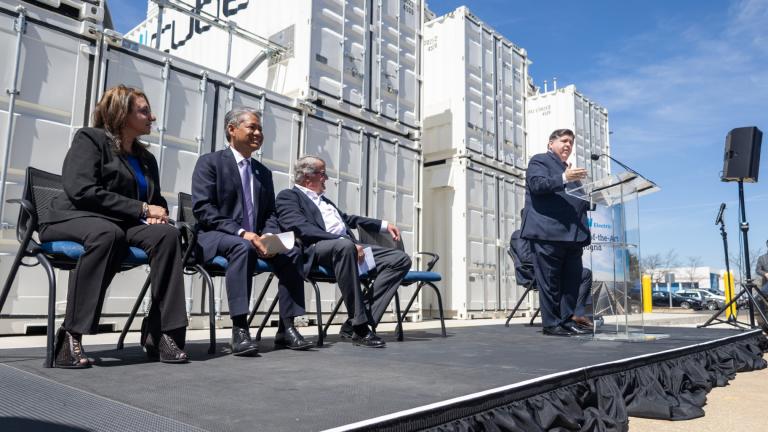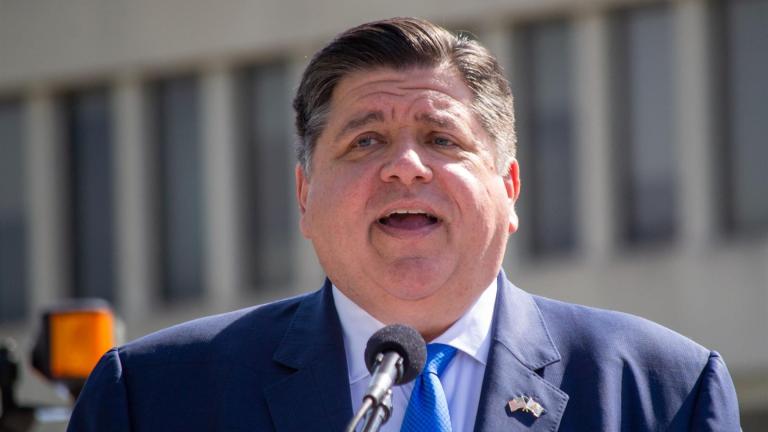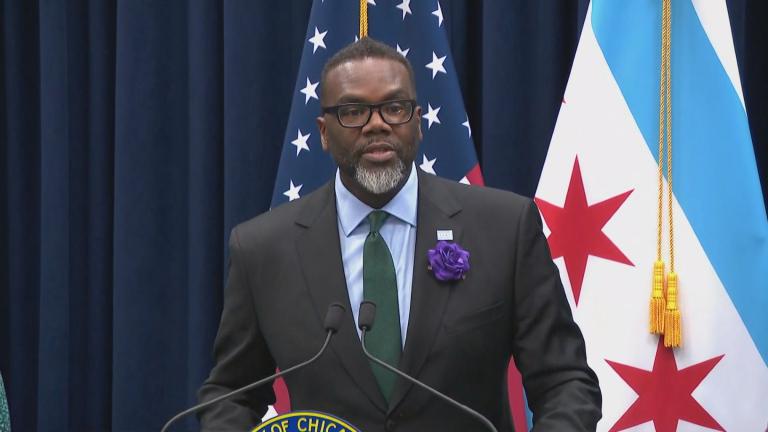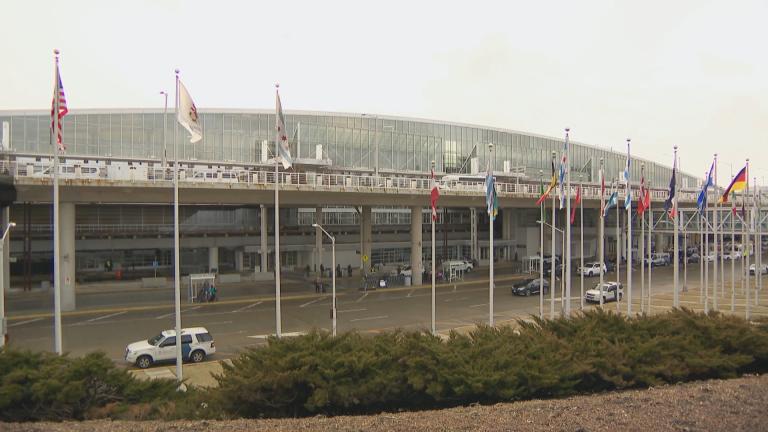Dark forces will be at play as a massive war over Illinois taxes is set to begin in earnest.
Gov. J.B. Pritzker campaigned on the pledge of moving Illinois from a flat income tax to a graduated one, in which there would be tiered rates tied to an individual’s wealth.
Now that he’s governor, the Democrat is in the early stages of making good on that pledge.
“The state needs a fair tax, and I am going to be relentless in pursuing one over the next two years,” Pritzker said Wednesday during his highly-anticipated budget address. “My office intends to immediately begin negotiations over proposed fair tax rates with leaders from the House and Senate.”
Despite journalists’ continued pressing, Pritzker has refused to say what potential tax brackets might look like, beyond the vague promise of a tax break for middle-class Illinoisans.
Pritkzer is a billionaire heir to the Hyatt fortune who admits he is an “unlikely proponent for this much-needed change.”
“Perhaps the fact that the heaviest burdens would fall on taxpayers like myself under a new fair tax system will convince many of you that I am proposing this path forward because I truly believe it’s what is best for Illinois,” he said.
Pritzker spent $171 million during Illinois’ 2018 election cycle.
Now, he’ll use his vast personal wealth to try to convince voters to amend the state constitution to allow for graduated income tax rates.
As he said during his budget speech: “Make no bones about it, I choose to stand up for working families and will lead the charge to finally enact a fair tax system in Illinois.”
Pritzker is a donor to Think Big Illinois, a spokeswoman for organization confirmed via email, though Lara Sisselman would not say how much money Pritzker has pumped into it.
“Aside from being a donor, he has no involvement with the organization as we are a 501c4,” Sisselman said.
Neither Pritzker nor the organization is required to disclose the amount of his contribution.
Think Big Illinois is a 501c4 nonprofit, which the IRS defines as a “tax-exempt … social welfare organization.”
But such organizations are more colloquially called “dark money” groups because of their ability to keep funders hidden.
According to Open Secrets, “These organizations can receive unlimited corporate, individual or union contributions that they do not have to make public, and though their political activity is supposed to be limited, the IRS – which has jurisdiction over these groups – by and large has done little to enforce those limits.”
Think Big Illinois, which launched Feb. 8 and is run by Pritzker’s former deputy campaign manager, Quentin Fulks, will share at least partial contributor information.
According to a Feb. 13 press release, it will “voluntarily” make its donors public when filing annual nonprofit tax returns.
“Think Big Illinois believes in bringing transparency and accountability to our public discussions around important policy issues facing this state,” Fulks said in the release. "Think Big Illinois hopes to set an example, and calls on similar organizations to reveal their donors as well. In the coming months, several important policies that impact all Illinoisans will be debated in our state, and it is critical that our residents know who stands on both sides of these issues."
But that could take years.
“No additional information will be available prior to our voluntary disclosure,” Sisselman said Thursday via email.
Think Big isn’t the only organization scaling up operations as the graduated income tax fight is set to hit the General Assembly.
A countereffort is already on the attack, gearing up to persuade voters in 2020 to reject a constitutional amendment allowing for scaled tax brackets.
The Coalition for Jobs, Growth and Prosperity – formed in 2004 by the Illinois Manufacturers' Association's Greg Baise and businessman and Republican Party donor Ron Gidwitz – launched its Ideas Illinois initiative, also on Feb. 8, which a press release describes as “committed to improving and growing Illinois’ economy by promoting free-market principles anchored in a reasonable and predictable tax system.”
An operative involved with the effort said it does not plan to voluntarily disclose contributor information, and will play by the same rules as other 501c4 groups.
While the fractured Illinois Republican Party is battling diminished power since heavy election losses in November, including former Gov. Bruce Rauner’s loss to Pritzker, this is an area expected to energize and unify the GOP.
Ideas Illinois’ leaders are counting on voters – who they say are fatigued from being asked to reach into their pockets to shore up government finances – to agree.
“It’s the only fight,” the operative said. “The most important fight worth fighting this time around.”
Ideas Illinois is already out with a digital ad.
“Billions in unpaid pension obligations. Never-ending tax increases,” a narrator says in the ad. “Something needs to change. It’s time to put Illinois on a sustainable path. Ideas Illinois is here to lead that discussion.”
Expect an onslaught of ads and activity, from both organizations, as the graduated tax fight ramps up.
“When it comes to the progressive income tax, [Think Big Illinois] plans on using a variety of manners, including television, digital spending, social media and grassroots organizing to help accomplish our goals,” Sisselman of Think Big Illinois said. “Illinoisans feel that our current tax system is unfair, and we plan to be an ally for middle-class families and workers in the fight to make it work for everyone.”
While it could be a heavy lift for legislators in targeted districts, with supermajority Democrats in both the Illinois House and Senate, Pritzker should be able to get three-fifths of the legislature to vote to put a graduated income tax constitutional amendment on the 2020 ballot.
Senate President John Cullerton said Wednesday that he expects to pass that language, as well as a bill that would set graduated tax rates, this session.
The larger battle in the war will unfold before the public.
Either three-fifths of those voting on the question – or a majority of all voters casting ballots in Illinois in the 2020 general election – need to give their approval for a constitutional amendment to pass.
Follow Amanda Vinicky on Twitter: @AmandaVinicky
Related stories:
Pritkzer’s ‘Austere’ Budget Relies on Pension Plan, New Taxes
Officials React to Pritzker’s State Budget Address
Pritzker to Unveil State Budget Proposal, Facing $3B Deficit
Illinois Lawmakers Debate Financial Steps Amid Pritzker Deficit Report








